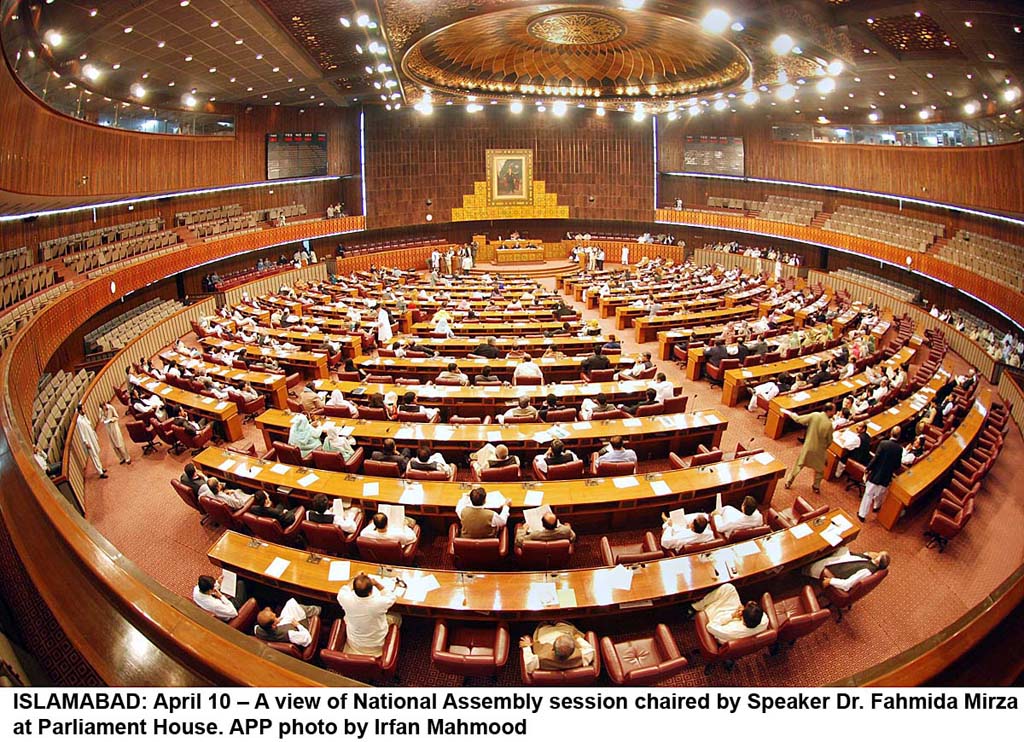
During his second stint as Leader of the House, Prime Minister Nawaz Sharif tried to bulldoze what is known as the Shariat Bill, that would have bestowed on him the powers of a dictator. Even the late prime minister Zulfikar Ali Bhutto, whose services and sacrifices for restoration of democracy in Pakistan are unmatched, also suffered from this devastating dictatorial streak. Had it not been so, perhaps he would have gone about passing the third, fourth and fifth amendments to the Constitution in a more democratic manner, which could have helped usher in a democratic culture that no man on a horseback would have dared to violate. The tendency to behave like dictators has seeped into the leadership of the PML-N so much so that one is totally befuddled by the way elected parliamentarians treat the two Houses.
The other day, the Senate chairman had to ban the entry of Defence Minister Khawaja Asif for the remaining session of the Senate, for not being present in the House to wind up a debate on the army chief’s visit to Kabul. Most federal ministers have already been warned by the National Assembly speaker, as well as the Senate chairman for displaying a nonchalant attitude towards their parliamentary obligations. The prime minister is perhaps the biggest offender in this respect as he has made it a habit to attend parliament only occasionally and that too for short periods. Not only is parliament being treated by the ruling party as something of an unnecessary hurdle in its way, but even the opposition, which in a democratic set-up is regarded as the government-in-waiting, is being dismissed as an unwanted entity holding up the smooth running of the government.
Take for instance, the tax amnesty bill. As PTI Vice-President Shah Mehmood Quraishi pointed out, it is the ninth bill of the kind and all such bills were introduced to provide a one-time reprieve to tax evaders under the pretext of getting them into the tax net. But none had succeeded in achieving this objective. So, Mr Shah was justified in asking how this latest bill would succeed where all the previous ones had failed. Indeed, it is like treating a disease with the same medicine again and again. And as Naveed Qamar of the PPP put it, the bill gives a hint to the current taxpayers that they are fools because there are alternatives to make their way without paying taxes. The law, in effect, awards tax cheats and discriminates against honest taxpayers.
And no doubt whenever the issue of privatisation of PIA enters national debate, passions run very high because of the way it has been regarded as one of the most prestigious national assets over the last more than half a century. It has also been seen as the only vehicle that connects every nook and cranny of the country. So, while one would like to see PIA regain its lost glory following its corporatisation, one would also like it to continue to keep the national connectivity intact, no matter what the cost.
Published in The Express Tribune, January 24th, 2016.
Like Opinion & Editorial on Facebook, follow @ETOpEd on Twitter to receive all updates on all our daily pieces.












COMMENTS (2)
Comments are moderated and generally will be posted if they are on-topic and not abusive.
For more information, please see our Comments FAQ